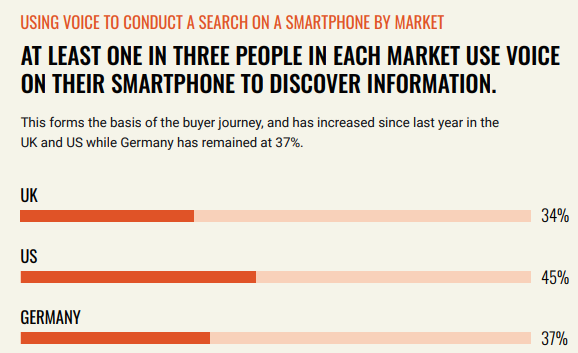The Ultimate Guide to SEO: Boosting Your Online Visibility
AdAdvent is here to help you navigate the ever-evolving world of SEO and achieve your digital marketing goals...
Learn more


In the rapidly evolving landscape of digital marketing, voice search is emerging as a transformative force. With the increasing popularity of voice-activated devices like Amazon's Alexa, Google Assistant, and Apple's Siri, voice search is changing the way people find information online. For businesses and marketers, this shift presents a unique opportunity to optimize their digital strategies to stay ahead. This article explores the rise of voice search and offers actionable tips to optimize your digital strategy for this burgeoning trend.
Voice search technology has seen exponential growth over the past few years. According to recent studies, nearly half of all searches will be voice-based by the end of 2024. This trend is driven by several factors:

Voice search is not just a passing fad; it represents a fundamental shift in how users interact with technology. Here are some compelling reasons why optimizing for voice search should be a priority:
To leverage the power of voice search, businesses need to adapt their digital strategies accordingly. Here are some key steps to optimize for voice search:
Voice searches are typically longer and more conversational than text searches. Instead of targeting short, fragmented keywords, focus on long-tail keywords and natural language phrases that people are likely to use in spoken queries.
Example: Instead of targeting "best Italian restaurant," optimize for "What is the best Italian restaurant near me?"
Featured snippets, also known as "position zero," are often the source of answers for voice search queries. Structure your content to answer common questions clearly and concisely, increasing the chances of being featured.
Example: Use headings and bullet points to highlight key information, making it easier for search engines to extract and display your content as a snippet.
Ensure your business is optimized for local searches by updating your Google My Business listing, gathering positive reviews, and including location-based keywords in your content.
Example: If you run a local bakery, include phrases like "best bakery in [City]" and ensure your address, phone number, and operating hours are up to date on your online profiles.
Since many voice searches are conducted on mobile devices, having a mobile-friendly website is crucial. Ensure your site loads quickly, is easy to navigate, and provides a seamless user experience on all devices.
Example: Use responsive design, optimize images for faster loading times, and simplify your site's navigation for mobile users.

Frequently Asked Questions (FAQ) pages are a goldmine for voice search optimization. They address common queries directly, making it easier for voice assistants to find and deliver relevant information.
Example: Develop comprehensive FAQ pages that answer questions related to your products, services, and industry. Use natural language and structured data to improve visibility.
As with any digital strategy, it's essential to measure the effectiveness of your voice search optimization efforts. Here are some metrics to track:
The future of voice search looks promising, with several trends poised to shape its evolution:
The rise of voice search represents a significant shift in the digital marketing landscape. By optimizing your digital strategy for voice search, you can enhance user engagement, improve local SEO, and stay ahead of the competition. Focus on conversational keywords, optimize for featured snippets, improve mobile experiences, and create valuable FAQ content to capture the growing voice search audience. As voice search technology continues to evolve, staying informed about emerging trends and adapting your strategy accordingly will be key to maintaining a competitive edge. Embrace the sound of the future and let your business's voice be heard.












